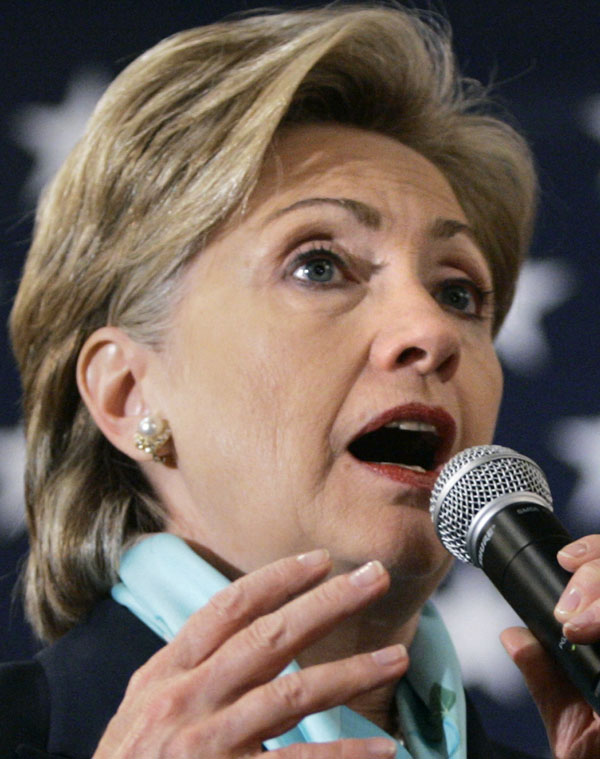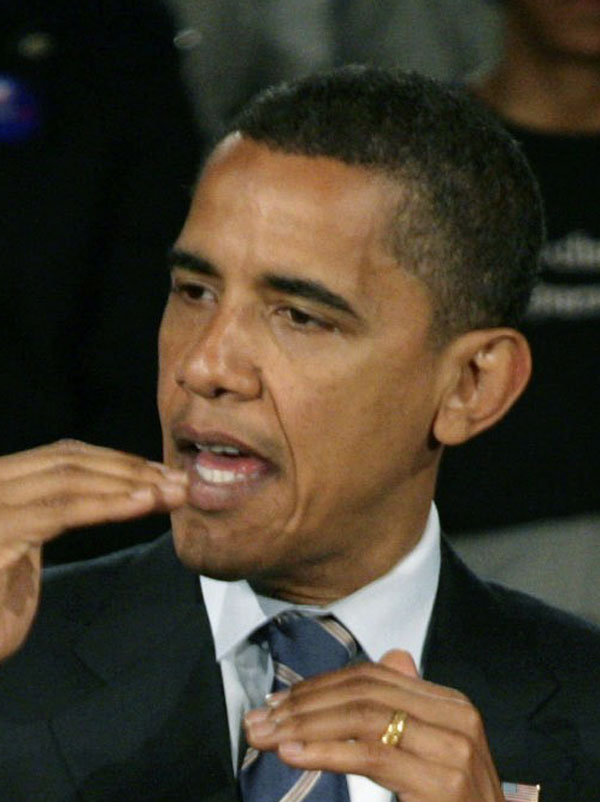Reid, Pelosi push for decision
WASHINGTON -- Top Democratic leaders intend to push for a quick end to the battle for the presidential nomination when primaries are over next week, Senate Majority Leader Harry Reid said Thursday, adding that he, Speaker Nancy Pelosi and party chairman Howard Dean will urge uncommitted delegates to choose sides.
"By this time next week, it will all be over give or take a day," Reid said of the marathon race between the front-running Barack Obama and Hillary Clinton.
Obama is within 44 delegates of clinching the nomination, according to The Associated Press tally, and leads Clinton by roughly 200 delegates.
Democratic officials said Pelosi already has begun contacting uncommitted House members urging them to weigh in soon after the primary season ends.
Numerous Democrats have expressed concern that a protracted nominating campaign could harm the party's chances of winning the White House in the fall. John McCain effectively wrapped up the Republican nomination in March.
Tantalizingly close to the nomination, Obama stands to gain a minimum of roughly 20 delegates in remaining primaries in Puerto Rico, Montana and South Dakota under party rules that distribute them proportional to the popular vote -- even if he loses all three. He would need to enlist the support of uncommitted superdelegates to amass the rest.
Slightly fewer than 200 superdelegates remain uncommitted, including 64 members of Congress.
One, Rep. James Clyburn of South Carolina, the Democratic whip in the House, was quoted in a report published Thursday as saying he intended to disclose his preference as the final primaries are held on Tuesday.
Clyburn, who is black and whose district and state voted overwhelmingly for Obama, is widely expected to support the Illinois senator.
Asked about the story in the Stamford Advocate, Kristie Greco, a spokeswoman for Clyburn, noted that he repeatedly has said he will not endorse before June 3.
Although Obama holds a commanding lead in delegates, Clinton has threatened to campaign into the August convention if she is not satisfied with the results of a party committee meeting this weekend.
A Democratic National Committee panel is scheduled to discuss the fate of disputed delegations from Michigan and Florida, two states that held primaries last winter in defiance of party rules.
Reid, in an interview on radio station KGO in San Francisco, said he had talked since Wednesday with both Pelosi and Dean. "We agree there won't be a fight at the convention. ... We're going to urge folks to make a decision quickly -- next week."
Reid said the results of the disputed primaries in Florida and Michigan "should be counted as well," but he did not propose a compromise to resolve the controversy.
He made his prediction that the nominating fight would be settled by the end of next week in a speech at the Commonwealth Club in San Francisco.
PUERTO RICO, JUNE 1
55 delegates
Seven superdelegates will round out the island's 62 convention votes. Three of the superdelegates are committed to Clinton, two to Obama, and two are uncommitted. Residents of the island get no vote in the general election.
MONTANA, JUNE 3
16 delegates
The most recent poll, taken in December, showed that Clinton was preferred over Obama among Montana Democrats, although a majority of voters in the state have an unfavorable impression of her. There is no party registration in Montana; the primary is open to all voters.
SOUTH DAKOTA, JUNE 3
15 delegates
No independent public opinion polls have been published on the candidates' popularity in the state, and neither Obama nor Clinton has campaigned in South Dakota. However, Obama has solid backing from South Dakota's superdelegates.


















